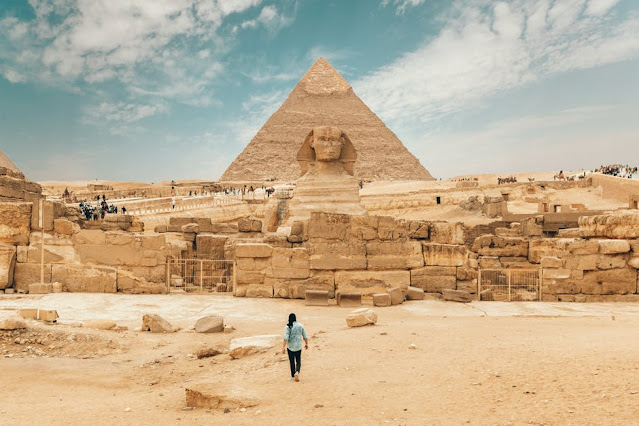Explanation of Al-Khansa’s Poetry
These poems which Mohammad Shareef Saleem included to his book named مجموعة من النظم للحفظ والتسميع were said by the greatest poetess who ever lived in the history of Arab literature, Al-Khansa whose real name was Tumadir bint 'Amr ibn Al-Sharid, and who was born approximately 575 in Najd in central Arabia and died approximately 664 in her Arabian hometown and was given the title of the poetess of Ritha.
These poems consist of sorrowful eulogies for her beloved brother Sakhr who was killed in tribal strife and loved her a lot and helped her so much to solve the problems of her life.
أعيني جودا ولا تجمدا
ألا تبكيان لصخر الندى؟
In the first poem, Al-Khansa is addressing her both eyes and asking them to be generous by their tears and cry on the death of her beloved brother Sakhr and not to stop their crying. Then she is asking both of them in astonishment: "would you not shed your tears over my beloved and dead brother Sakhr who was very generous by his wealth?"
ألا تبكيان الجواد الجميل؟
ألا تبكيان الفتى السيدا؟
In the second poem, she is praising her beloved and dead brother Sakhr and asking her eyes once again in astonishment: "would you not shed your tears over the person who was magnanimous and handsome and who was selected by the people as their chief, although he was in very young age and people generally don't select a young man as their chief?"
طويل النجاد رفيع العما
د ساد عشيرته أمردا
In the third poem also, Al-Khansa is praising her beloved and dead brother Sakhr and repeating what she said in the second poem, saying that my brother was a person with tall stature and noble deed. She wants to say that her brother Sakhr who was killed in tribal strife, was a very brave young man, as well as an honorable chief and his clan selected him as chief when he was in very young age, although a young man is not chosen the chief.
إذا القوم مدوا أياديهم
إلى المجد مد إليه يدا
In the fourth poem, the poetess is saying that when the people of his tribe extended their hands toward nobility, he also stretched his hand. By these phrases she wants to say that when the persons of his tribe started to do noble deeds so that they could achieve nobility and honor and live and an honorable life among the people, my beloved brother too began doing the same things to achieve nobility and honor and live an honorable life among them, but he proved to be better than them in achieving his goals.
فنال الذي فوق أيديهم
من المجد ثم مضى مصعدا
In the fifth poem, Al-Khansa is describing the result of her beloved brother's efforts, and wants to say that every person of his tribe tried to do noble deeds and got successful in their efforts and achieved nobility. My brother also made efforts but he achieved nobility which was beyond their capacity and became the noblest person among them till everyone respected him and gave him honor more than them.
يحملهم القوم ما عالهم
وإن كان أصغرهم مولدا
In the sixth poem also, the poetess is praising her beloved and dead brother, saying that my brother was the youngest of the people of his clan by birth, but able to do what they could not do. That is why when something bothered them and they had difficulties to do it, they asked him to do and he would not make them disappointed. Indeed he properly completed what they asked him to do.
وإن ذكر المجد ألفيته
تأزر بالمجد ثم ارتدى
In the last poem, Al-Khansa is describing the summary of all the previous poems, as if she wants to say that I'm not able to mention his nobility in words because of being it out of description. Rather, as a summary, I can say that he did not achieve the nobility but became fully cloth in the nobility.


تعليقات
إرسال تعليق
Please do not enter any spam links in the comment box.